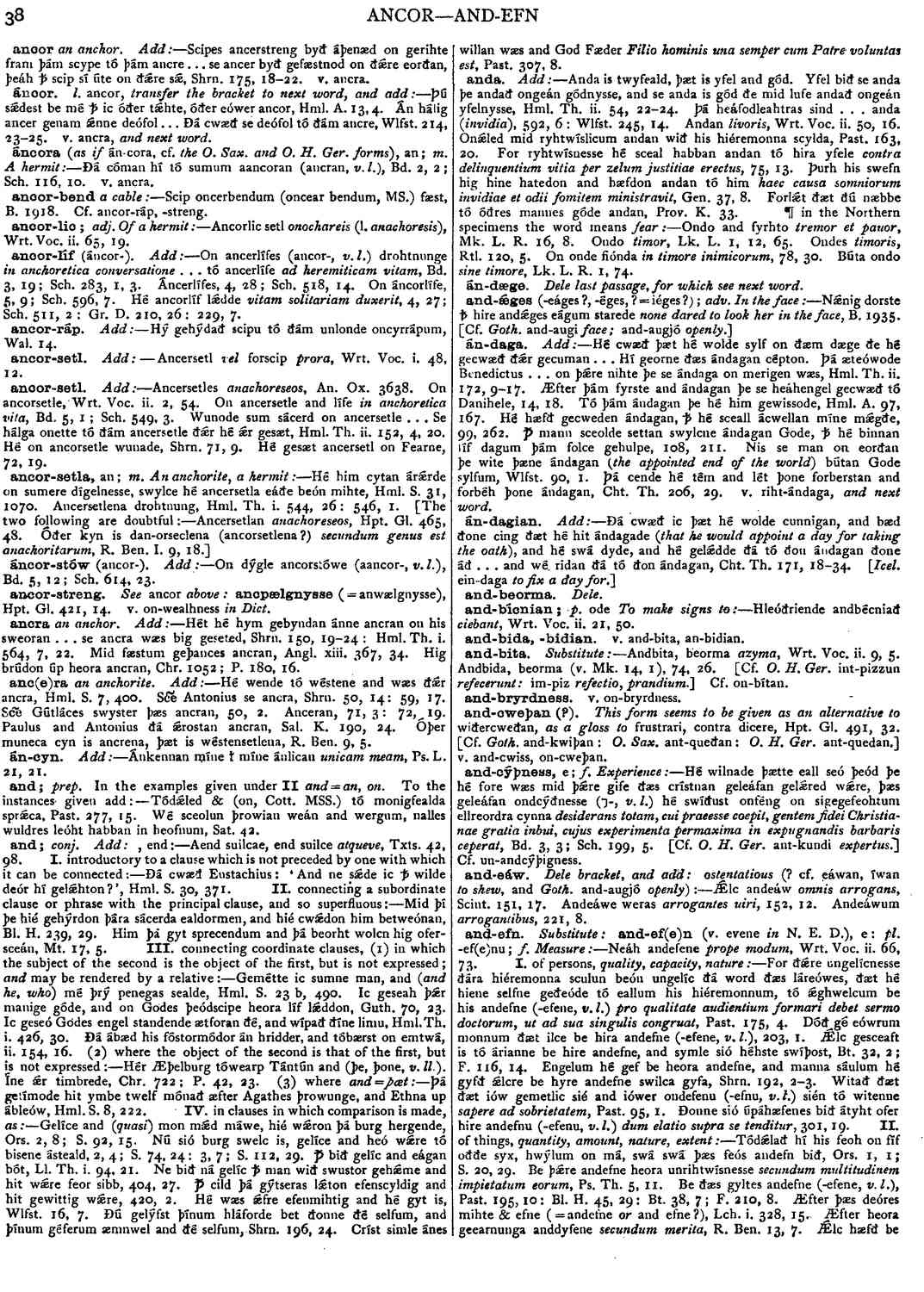anda
-
Anda is twyfeald, þæt is yfel and gód. Yfel bið se anda þe andað ongeán gódnysse, and se anda is gód ðe mid lufe andað ongeán yfelnysse,
- Hml. Th. ii. 54, 22-24.
-
Þá heáfodleahtras sind . . . anda (
invidia
),- 592, 6: Wlfst. 245, 14.
-
Andan
livoris,
- Wrt. Voc. ii. 50, 16.
-
Onǽled mid ryhtwíslicum andan wið his hiéremonna scylda,
- Past. 163, 20.
-
For ryhtwísnesse hé sceal habban andan tó hira yfele
contra delinquentium vitia per zelum justitiae erectus,
- 75, 13.
-
Þurh his swefn hig hine hatedon and hæfdon andan tó him
haec causa somniorum invidiae et odii fomitem ministravit,
- Gen. 37, 8.
-
Forlǽt ðæt ðú næbbe tó óðres mannes góde andan, Prov. K. 33. ¶ in the Northern specimens the word means fear :-- Ondo and fyrhto
tremor et pauor,
- Mk. L. R. 16, 8.
-
Ondo
timor,
- Lk. L. 1, 12, 65.
-
Ondes
timoris,
- Rtl. 120, 5.
-
On onde fiónda
in timore inimicorum,
- 78, 30.
-
Búta ondo
sine timore,
- Lk. L. R. 1, 74.
Bosworth, Joseph. “anda.” In An Anglo-Saxon Dictionary Online, edited by Thomas Northcote Toller, Christ Sean, and Ondřej Tichy. Prague: Faculty of Arts, Charles University, 2014. https://bosworthtoller.com/38588.
Checked: 0